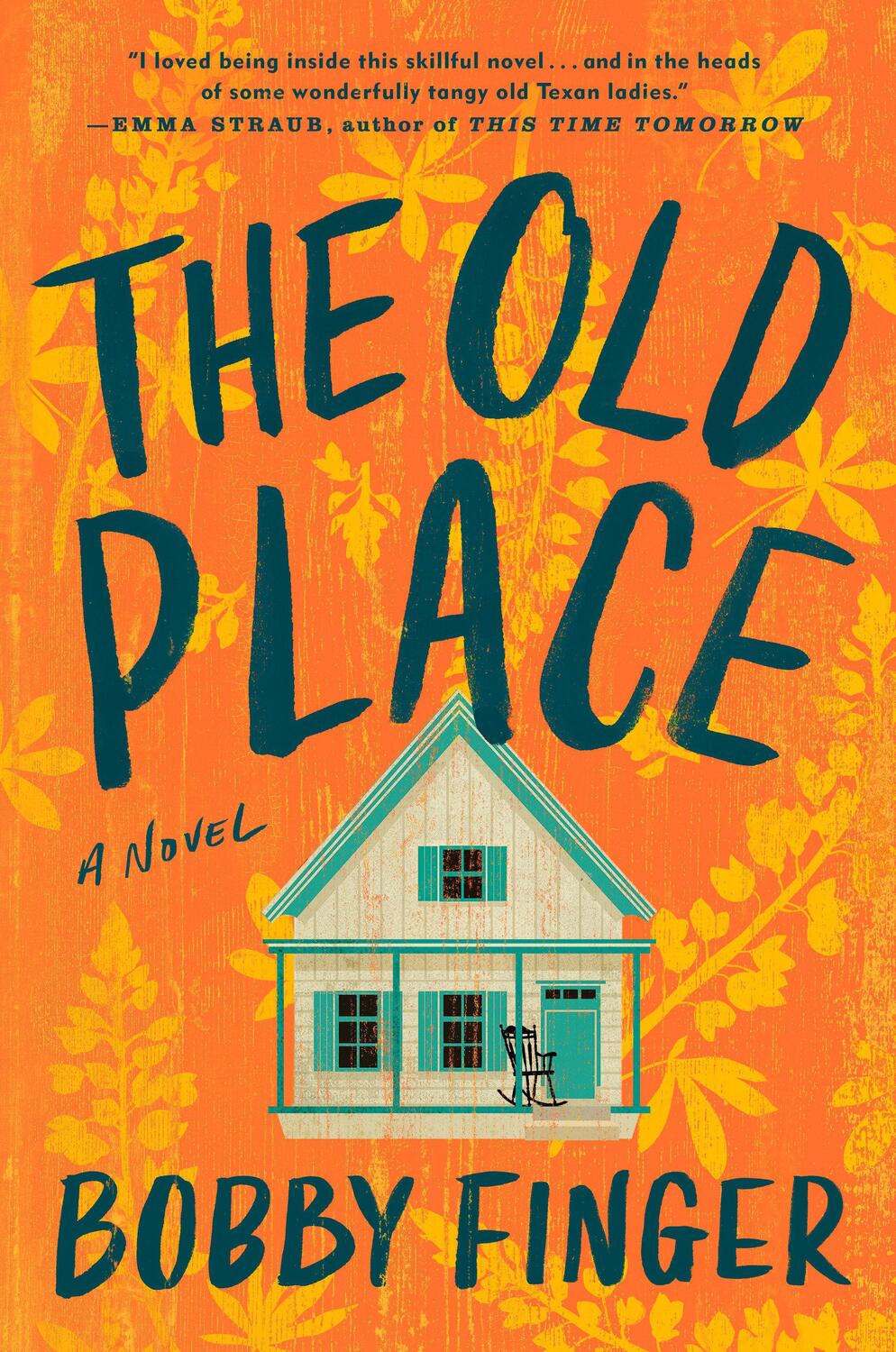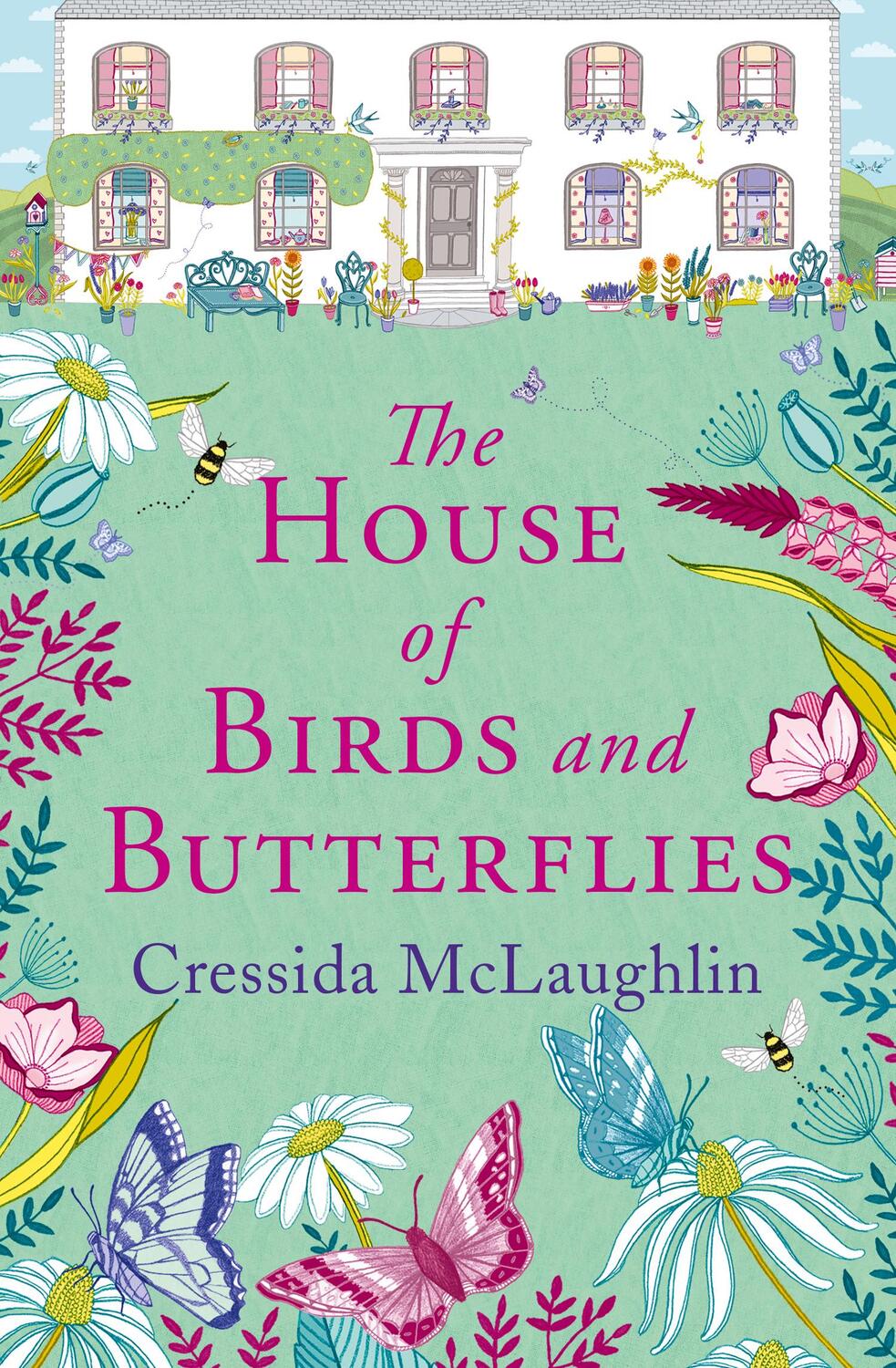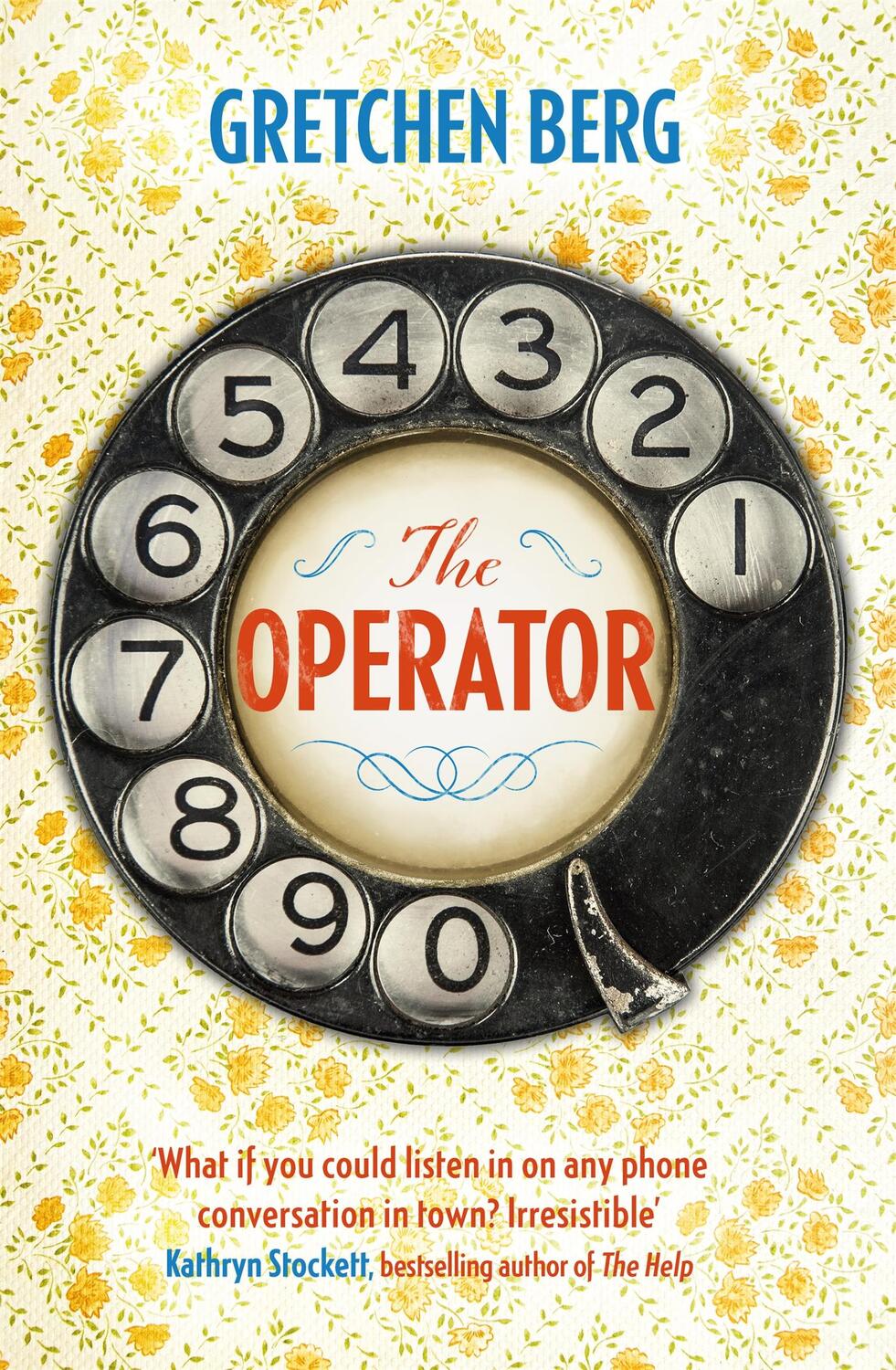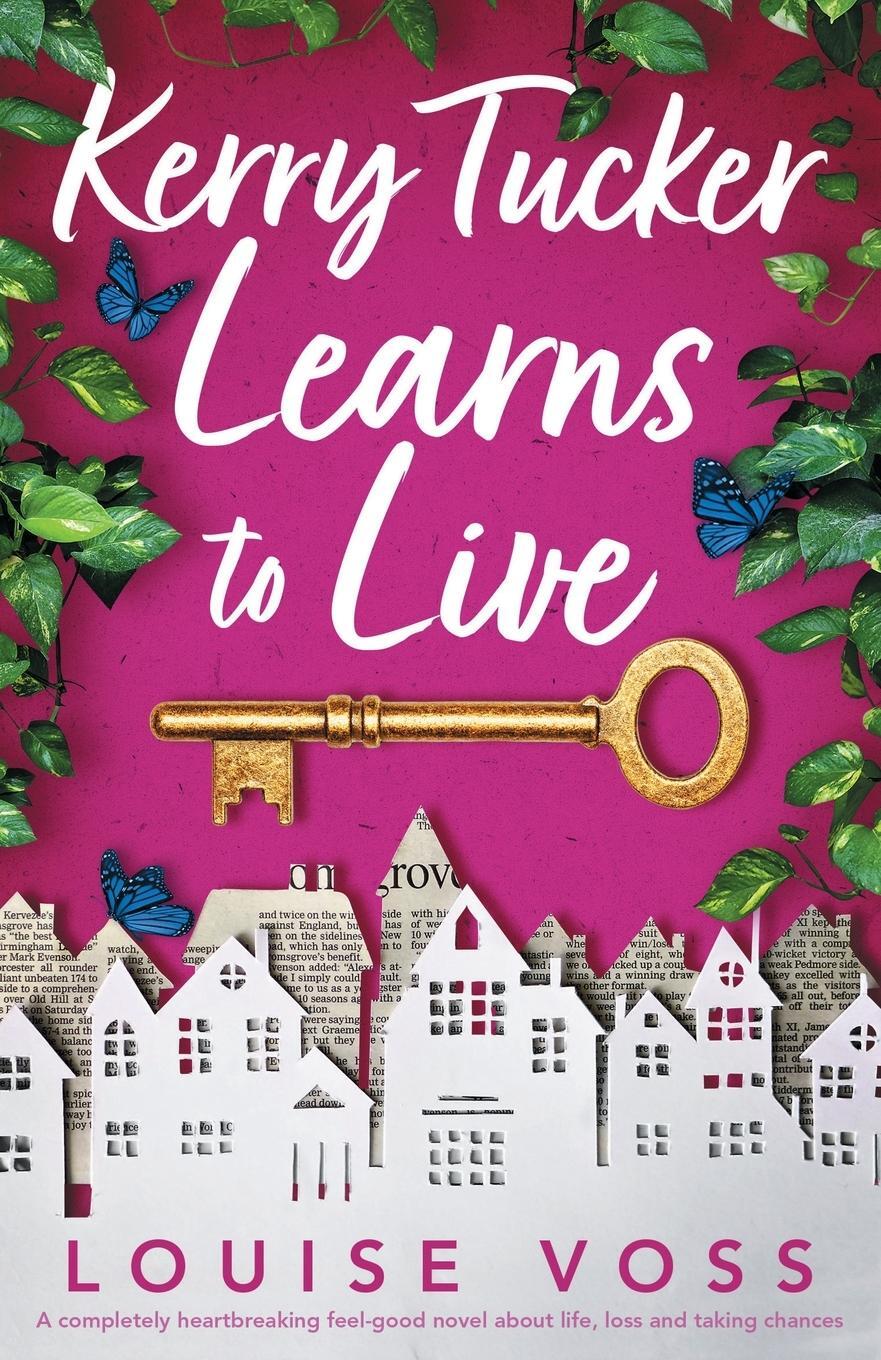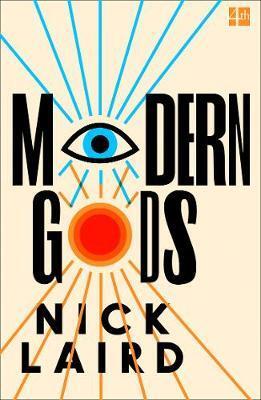Dekorationsartikel gehören nicht zum Leistungsumfang.
Sprache:
Englisch
32,10 €*
Versandkostenfrei per Post / DHL
Lieferzeit 1-2 Wochen
Kategorien:
Beschreibung
1
Mary Alice Roth woke up and stared at the big old trunk, which may as well have been a reflection. Unmoved for years, the hunk of carved, glossy hardwood sat under the window in her bedroom because she'd lost the only people strong enough to lift it somewhere else. At her age, the number of able bodies in a household doesn't tend to change, and neither does the way you sleep, which meant Mary Alice-the sole inhabitant of 4 County Road 1818 for over ten years and a left-side sleeper since she was in a crib-knew that for the rest of her life, the first thing she'd see in the morning would be a hideous antique trunk she hated more than just about anything else in the world. And now she couldn't get rid of it even if she tried, unless she wanted to throw out her back and spend hours moaning on the floor hoping someone would knock on the door and check on her. It was that sort of terrible, bottomless pit of a fact that made her wish she were dead. But she wasn't, not today at least. So she silenced the buzzing clock and began another week of living. What else was there for her to do, anyhow?
For most of her sixty-three years, Mary Alice held a grudging respect for mornings and the way they provided a solid foundation to the structure of her busy days, but lately they'd felt absurd. Starting a new day knowing you had nothing to make or do was utterly ridiculous, maybe even sinful. Monotony was only acceptable if imbued with some sort of greater purpose-like providing for a family or teaching math to the bright-eyed youth of small-town America-and Mary Alice hadn't figured out her new one yet. But a tiny, if fading, speck of hope that she would eventually sort out this stage of her life remained, so she flipped off the covers with a grunt and twisted her tall, bony body out of the four-poster. Seated, feet on the floor, she kept her eyes on that trunk as she offered the house a single droning sigh, a reminder that she was still here, and stood. Her joints were old, but they didn't creak. Her body was tired, but it didn't ache. Frailty would have been a welcome excuse to let herself wallow horizontally a little longer, but like all the women in her family, who had been growing old in this part of Texas since arriving from Germany some 150 years ago, she was cursed with good health and a revulsion to wasted time.
Today was the first day of classes at Billington Independent School District, a sprawling complex of small-to-smallish redbrick buildings and rusty tin just off the old highway, which itself was just off the new highway-the past butt up against the present. Had this been a normal year, Mary Alice Roth would have been among the scores of other employees, getting there early to memorize a handwritten seating chart she hid in the locked top drawer of her matte green metal desk, drinking warm coffee out of a thick mug stamped with a faded BHS logo, and basking in the light from the wall of windows she refused to obscure with decorations. But today, Mary Alice was exactly where she'd been for the past three months. She was home.
Earlier that summer, a few weeks into her district-mandated exile-or compulsory leave, or forced retirement, or whatever flowery term they ultimately chose to call it once that Josie Kerr swooped in and took over her old classroom-Mary Alice confronted two fundamental things about herself. The first was that she hated doing nothing. The second was that, without a job, she had nothing to do. That her next-door neighbor, Ellie Hall, happened to call at the very moment of her epiphany one June morning was lucky for the both of them, as the friendly check-in-one of their long-standing regular chats that was comforting, if superficial and always the same-quickly became an even friendlier standing invitation.
Here's how it happened: Ellie asked about Mary Alice's summer plans now that she was unemployed, and Mary Alice laughed. Mary Alice asked about Ellie's work, knowing full well that she hated talking about work, and Ellie laughed. So they did what Texans always loved to do, though they may deny it if asked: they complained about the heat. This led to complaining about the new priest, which eventually transitioned into gossiping about the family who moved into Margaret Rose's old house. He was a former Billington High School prom king, she was a city girl he dragged back home along with their son, and they must have gotten a great deal because Margaret Rose smoked at least a pack a day in that living room for eighty years. That place didn't just need a coat of paint, they decided. It needed new walls. Every old house comes with ghostly memories of its former inhabitants, but Margaret Rose's walls were a sickly yellow with tar caked onto every surface. Billington got noticeably quieter the day she died, they agreed just before their chatter began to wane. They'd never expected to miss the sound of her wheezing cough.
After even considerable time spent apart, the best of friends can usually start back up again as though only seconds have passed, but there was more than just time between Mary Alice and Ellie's last long chat. There was loss, too much of it. But this morning meant something, Ellie decided, so she tried her best to regain momentum, and there was no better way to do so than with gossip. She asked if Mary Alice had heard the news about the wife. No, Mary Alice had not heard that the wife had been hired at BHS; she'd deliberately avoided all news about that den of cowards and thieves masquerading as educators, and her casual acquaintances knew better than to say anything that might cause her ruffle-hungry feathers to as much as twitch. Ellie didn't need to explicitly mention that the wife was given Mary Alice's old job; it was obvious in her anxious delivery and confirmed by the silence that followed. And Mary Alice knew in that empty moment that Ellie regretted bringing it up and was about to say goodbye, so she blurted out, "Would you want to come over for coffee tomorrow morning?"
"You know the last time I had coffee at your place?"
"No, I don't."
"That's 'cause it's never happened before," Ellie said with a hearty laugh that made Mary Alice smile so big she got nervous someone might see. When was the last time anyone else had been in her house?
"Well, I'm sorry for being such a crummy neighbor all these years. How about I make it up to you tomorrow morning. All you have to do is show up."
"Well," Ellie said, with a hesitation that made Mary Alice's smile fade.
"Does seven-thirty work?"
Ellie said it did, surprising both of them.
***
The next morning, Ellie pushed open the gate on the south side of Mary Alice's house, its rusty hinge casting out a piercing squeak, and followed a short trail through the bushes onto her back patio, a covered, polished concrete rectangle with tiers of potted plants on wrought iron shelves in every corner and two large white Adirondack chairs in the center, facing the fenced backyard. A plastic side table was between them, with just enough room for the hot plate and coasters Mary Alice brought out from the kitchen. She removed her glasses and started filling two mugs as soon as the hinge squeaked.
"What, no eggs and bacon?" Ellie said as she stepped into the shade.
"Coffee's enough breakfast for me," Mary Alice said.
"I'm only pickin' on you." She sat and faced the pale yellow cornfields that began just past the fence and stretched all the way to the horizon. Mesquite trees dotted the edges of their view, jagged reminders of the land's fraught history. The tinkling from the wind chime came to an abrupt stop, as if the wind realized it was interrupting something momentous.
Mary Alice's mind raced. Another person on her patio! Was Ellie here out of pity or loneliness? Would it happen again or was it just going to be today? She used her own voice to drown out her thoughts. "You don't take milk, do you?"
"Heavens no."
"It's 'hell no' in this house, you know that," Mary Alice said. "So the coffee's good then? Tastes fine?"
"Better than what they've got at the hospital," Ellie said. "And even if it weren't, I'd drink every drop anyway."
And with that, after twelve years of awkward pleasantries, they were friends again. Not just neighbors, but actual friends. Friends who met face-to-face, who made each other laugh, and who could be happier than they'd been in years simply by sitting side by side in silence. All it took was a phone call and a pot of caffeine. Mary Alice turned her gaze to Ellie, eager to change the subject. She looked her friend up and down and squinted, craning her neck over the hot plate as she examined the pattern covering Ellie's body. "I never see you in your scrubs. What's all over those? Kittens?"
"Puppies."
Mary Alice's eyes narrowed even further, then popped wide open. "Oh, I see now."
"Kittens are Tuesdays."
They laughed a gentle, early-morning laugh and looked back to the sky, which had gotten a little brighter, as the dawn sky always manages to do. Thirty minutes later, Ellie was gone. Three hours after that, Mary Alice finished her book-a meandering experimental novel about a beloved radio host preparing for his final shows-wrapped the cord around the hot plate, and went back inside. Every time this new version of their friendship began to excite her and feel like something that could become permanent, Mary Alice snuffed out all flickers of optimism from her mind. She would enjoy their moments together as she was in them but would not yearn for more than Ellie was willing to give. She would distract herself from intrusive thoughts with another book, something propulsive and surprising. She would keep tabs on her neighbors, which was easier than keeping tabs on herself. Avoiding disappointment was a full-time job,...
Mary Alice Roth woke up and stared at the big old trunk, which may as well have been a reflection. Unmoved for years, the hunk of carved, glossy hardwood sat under the window in her bedroom because she'd lost the only people strong enough to lift it somewhere else. At her age, the number of able bodies in a household doesn't tend to change, and neither does the way you sleep, which meant Mary Alice-the sole inhabitant of 4 County Road 1818 for over ten years and a left-side sleeper since she was in a crib-knew that for the rest of her life, the first thing she'd see in the morning would be a hideous antique trunk she hated more than just about anything else in the world. And now she couldn't get rid of it even if she tried, unless she wanted to throw out her back and spend hours moaning on the floor hoping someone would knock on the door and check on her. It was that sort of terrible, bottomless pit of a fact that made her wish she were dead. But she wasn't, not today at least. So she silenced the buzzing clock and began another week of living. What else was there for her to do, anyhow?
For most of her sixty-three years, Mary Alice held a grudging respect for mornings and the way they provided a solid foundation to the structure of her busy days, but lately they'd felt absurd. Starting a new day knowing you had nothing to make or do was utterly ridiculous, maybe even sinful. Monotony was only acceptable if imbued with some sort of greater purpose-like providing for a family or teaching math to the bright-eyed youth of small-town America-and Mary Alice hadn't figured out her new one yet. But a tiny, if fading, speck of hope that she would eventually sort out this stage of her life remained, so she flipped off the covers with a grunt and twisted her tall, bony body out of the four-poster. Seated, feet on the floor, she kept her eyes on that trunk as she offered the house a single droning sigh, a reminder that she was still here, and stood. Her joints were old, but they didn't creak. Her body was tired, but it didn't ache. Frailty would have been a welcome excuse to let herself wallow horizontally a little longer, but like all the women in her family, who had been growing old in this part of Texas since arriving from Germany some 150 years ago, she was cursed with good health and a revulsion to wasted time.
Today was the first day of classes at Billington Independent School District, a sprawling complex of small-to-smallish redbrick buildings and rusty tin just off the old highway, which itself was just off the new highway-the past butt up against the present. Had this been a normal year, Mary Alice Roth would have been among the scores of other employees, getting there early to memorize a handwritten seating chart she hid in the locked top drawer of her matte green metal desk, drinking warm coffee out of a thick mug stamped with a faded BHS logo, and basking in the light from the wall of windows she refused to obscure with decorations. But today, Mary Alice was exactly where she'd been for the past three months. She was home.
Earlier that summer, a few weeks into her district-mandated exile-or compulsory leave, or forced retirement, or whatever flowery term they ultimately chose to call it once that Josie Kerr swooped in and took over her old classroom-Mary Alice confronted two fundamental things about herself. The first was that she hated doing nothing. The second was that, without a job, she had nothing to do. That her next-door neighbor, Ellie Hall, happened to call at the very moment of her epiphany one June morning was lucky for the both of them, as the friendly check-in-one of their long-standing regular chats that was comforting, if superficial and always the same-quickly became an even friendlier standing invitation.
Here's how it happened: Ellie asked about Mary Alice's summer plans now that she was unemployed, and Mary Alice laughed. Mary Alice asked about Ellie's work, knowing full well that she hated talking about work, and Ellie laughed. So they did what Texans always loved to do, though they may deny it if asked: they complained about the heat. This led to complaining about the new priest, which eventually transitioned into gossiping about the family who moved into Margaret Rose's old house. He was a former Billington High School prom king, she was a city girl he dragged back home along with their son, and they must have gotten a great deal because Margaret Rose smoked at least a pack a day in that living room for eighty years. That place didn't just need a coat of paint, they decided. It needed new walls. Every old house comes with ghostly memories of its former inhabitants, but Margaret Rose's walls were a sickly yellow with tar caked onto every surface. Billington got noticeably quieter the day she died, they agreed just before their chatter began to wane. They'd never expected to miss the sound of her wheezing cough.
After even considerable time spent apart, the best of friends can usually start back up again as though only seconds have passed, but there was more than just time between Mary Alice and Ellie's last long chat. There was loss, too much of it. But this morning meant something, Ellie decided, so she tried her best to regain momentum, and there was no better way to do so than with gossip. She asked if Mary Alice had heard the news about the wife. No, Mary Alice had not heard that the wife had been hired at BHS; she'd deliberately avoided all news about that den of cowards and thieves masquerading as educators, and her casual acquaintances knew better than to say anything that might cause her ruffle-hungry feathers to as much as twitch. Ellie didn't need to explicitly mention that the wife was given Mary Alice's old job; it was obvious in her anxious delivery and confirmed by the silence that followed. And Mary Alice knew in that empty moment that Ellie regretted bringing it up and was about to say goodbye, so she blurted out, "Would you want to come over for coffee tomorrow morning?"
"You know the last time I had coffee at your place?"
"No, I don't."
"That's 'cause it's never happened before," Ellie said with a hearty laugh that made Mary Alice smile so big she got nervous someone might see. When was the last time anyone else had been in her house?
"Well, I'm sorry for being such a crummy neighbor all these years. How about I make it up to you tomorrow morning. All you have to do is show up."
"Well," Ellie said, with a hesitation that made Mary Alice's smile fade.
"Does seven-thirty work?"
Ellie said it did, surprising both of them.
***
The next morning, Ellie pushed open the gate on the south side of Mary Alice's house, its rusty hinge casting out a piercing squeak, and followed a short trail through the bushes onto her back patio, a covered, polished concrete rectangle with tiers of potted plants on wrought iron shelves in every corner and two large white Adirondack chairs in the center, facing the fenced backyard. A plastic side table was between them, with just enough room for the hot plate and coasters Mary Alice brought out from the kitchen. She removed her glasses and started filling two mugs as soon as the hinge squeaked.
"What, no eggs and bacon?" Ellie said as she stepped into the shade.
"Coffee's enough breakfast for me," Mary Alice said.
"I'm only pickin' on you." She sat and faced the pale yellow cornfields that began just past the fence and stretched all the way to the horizon. Mesquite trees dotted the edges of their view, jagged reminders of the land's fraught history. The tinkling from the wind chime came to an abrupt stop, as if the wind realized it was interrupting something momentous.
Mary Alice's mind raced. Another person on her patio! Was Ellie here out of pity or loneliness? Would it happen again or was it just going to be today? She used her own voice to drown out her thoughts. "You don't take milk, do you?"
"Heavens no."
"It's 'hell no' in this house, you know that," Mary Alice said. "So the coffee's good then? Tastes fine?"
"Better than what they've got at the hospital," Ellie said. "And even if it weren't, I'd drink every drop anyway."
And with that, after twelve years of awkward pleasantries, they were friends again. Not just neighbors, but actual friends. Friends who met face-to-face, who made each other laugh, and who could be happier than they'd been in years simply by sitting side by side in silence. All it took was a phone call and a pot of caffeine. Mary Alice turned her gaze to Ellie, eager to change the subject. She looked her friend up and down and squinted, craning her neck over the hot plate as she examined the pattern covering Ellie's body. "I never see you in your scrubs. What's all over those? Kittens?"
"Puppies."
Mary Alice's eyes narrowed even further, then popped wide open. "Oh, I see now."
"Kittens are Tuesdays."
They laughed a gentle, early-morning laugh and looked back to the sky, which had gotten a little brighter, as the dawn sky always manages to do. Thirty minutes later, Ellie was gone. Three hours after that, Mary Alice finished her book-a meandering experimental novel about a beloved radio host preparing for his final shows-wrapped the cord around the hot plate, and went back inside. Every time this new version of their friendship began to excite her and feel like something that could become permanent, Mary Alice snuffed out all flickers of optimism from her mind. She would enjoy their moments together as she was in them but would not yearn for more than Ellie was willing to give. She would distract herself from intrusive thoughts with another book, something propulsive and surprising. She would keep tabs on her neighbors, which was easier than keeping tabs on herself. Avoiding disappointment was a full-time job,...
1
Mary Alice Roth woke up and stared at the big old trunk, which may as well have been a reflection. Unmoved for years, the hunk of carved, glossy hardwood sat under the window in her bedroom because she'd lost the only people strong enough to lift it somewhere else. At her age, the number of able bodies in a household doesn't tend to change, and neither does the way you sleep, which meant Mary Alice-the sole inhabitant of 4 County Road 1818 for over ten years and a left-side sleeper since she was in a crib-knew that for the rest of her life, the first thing she'd see in the morning would be a hideous antique trunk she hated more than just about anything else in the world. And now she couldn't get rid of it even if she tried, unless she wanted to throw out her back and spend hours moaning on the floor hoping someone would knock on the door and check on her. It was that sort of terrible, bottomless pit of a fact that made her wish she were dead. But she wasn't, not today at least. So she silenced the buzzing clock and began another week of living. What else was there for her to do, anyhow?
For most of her sixty-three years, Mary Alice held a grudging respect for mornings and the way they provided a solid foundation to the structure of her busy days, but lately they'd felt absurd. Starting a new day knowing you had nothing to make or do was utterly ridiculous, maybe even sinful. Monotony was only acceptable if imbued with some sort of greater purpose-like providing for a family or teaching math to the bright-eyed youth of small-town America-and Mary Alice hadn't figured out her new one yet. But a tiny, if fading, speck of hope that she would eventually sort out this stage of her life remained, so she flipped off the covers with a grunt and twisted her tall, bony body out of the four-poster. Seated, feet on the floor, she kept her eyes on that trunk as she offered the house a single droning sigh, a reminder that she was still here, and stood. Her joints were old, but they didn't creak. Her body was tired, but it didn't ache. Frailty would have been a welcome excuse to let herself wallow horizontally a little longer, but like all the women in her family, who had been growing old in this part of Texas since arriving from Germany some 150 years ago, she was cursed with good health and a revulsion to wasted time.
Today was the first day of classes at Billington Independent School District, a sprawling complex of small-to-smallish redbrick buildings and rusty tin just off the old highway, which itself was just off the new highway-the past butt up against the present. Had this been a normal year, Mary Alice Roth would have been among the scores of other employees, getting there early to memorize a handwritten seating chart she hid in the locked top drawer of her matte green metal desk, drinking warm coffee out of a thick mug stamped with a faded BHS logo, and basking in the light from the wall of windows she refused to obscure with decorations. But today, Mary Alice was exactly where she'd been for the past three months. She was home.
Earlier that summer, a few weeks into her district-mandated exile-or compulsory leave, or forced retirement, or whatever flowery term they ultimately chose to call it once that Josie Kerr swooped in and took over her old classroom-Mary Alice confronted two fundamental things about herself. The first was that she hated doing nothing. The second was that, without a job, she had nothing to do. That her next-door neighbor, Ellie Hall, happened to call at the very moment of her epiphany one June morning was lucky for the both of them, as the friendly check-in-one of their long-standing regular chats that was comforting, if superficial and always the same-quickly became an even friendlier standing invitation.
Here's how it happened: Ellie asked about Mary Alice's summer plans now that she was unemployed, and Mary Alice laughed. Mary Alice asked about Ellie's work, knowing full well that she hated talking about work, and Ellie laughed. So they did what Texans always loved to do, though they may deny it if asked: they complained about the heat. This led to complaining about the new priest, which eventually transitioned into gossiping about the family who moved into Margaret Rose's old house. He was a former Billington High School prom king, she was a city girl he dragged back home along with their son, and they must have gotten a great deal because Margaret Rose smoked at least a pack a day in that living room for eighty years. That place didn't just need a coat of paint, they decided. It needed new walls. Every old house comes with ghostly memories of its former inhabitants, but Margaret Rose's walls were a sickly yellow with tar caked onto every surface. Billington got noticeably quieter the day she died, they agreed just before their chatter began to wane. They'd never expected to miss the sound of her wheezing cough.
After even considerable time spent apart, the best of friends can usually start back up again as though only seconds have passed, but there was more than just time between Mary Alice and Ellie's last long chat. There was loss, too much of it. But this morning meant something, Ellie decided, so she tried her best to regain momentum, and there was no better way to do so than with gossip. She asked if Mary Alice had heard the news about the wife. No, Mary Alice had not heard that the wife had been hired at BHS; she'd deliberately avoided all news about that den of cowards and thieves masquerading as educators, and her casual acquaintances knew better than to say anything that might cause her ruffle-hungry feathers to as much as twitch. Ellie didn't need to explicitly mention that the wife was given Mary Alice's old job; it was obvious in her anxious delivery and confirmed by the silence that followed. And Mary Alice knew in that empty moment that Ellie regretted bringing it up and was about to say goodbye, so she blurted out, "Would you want to come over for coffee tomorrow morning?"
"You know the last time I had coffee at your place?"
"No, I don't."
"That's 'cause it's never happened before," Ellie said with a hearty laugh that made Mary Alice smile so big she got nervous someone might see. When was the last time anyone else had been in her house?
"Well, I'm sorry for being such a crummy neighbor all these years. How about I make it up to you tomorrow morning. All you have to do is show up."
"Well," Ellie said, with a hesitation that made Mary Alice's smile fade.
"Does seven-thirty work?"
Ellie said it did, surprising both of them.
***
The next morning, Ellie pushed open the gate on the south side of Mary Alice's house, its rusty hinge casting out a piercing squeak, and followed a short trail through the bushes onto her back patio, a covered, polished concrete rectangle with tiers of potted plants on wrought iron shelves in every corner and two large white Adirondack chairs in the center, facing the fenced backyard. A plastic side table was between them, with just enough room for the hot plate and coasters Mary Alice brought out from the kitchen. She removed her glasses and started filling two mugs as soon as the hinge squeaked.
"What, no eggs and bacon?" Ellie said as she stepped into the shade.
"Coffee's enough breakfast for me," Mary Alice said.
"I'm only pickin' on you." She sat and faced the pale yellow cornfields that began just past the fence and stretched all the way to the horizon. Mesquite trees dotted the edges of their view, jagged reminders of the land's fraught history. The tinkling from the wind chime came to an abrupt stop, as if the wind realized it was interrupting something momentous.
Mary Alice's mind raced. Another person on her patio! Was Ellie here out of pity or loneliness? Would it happen again or was it just going to be today? She used her own voice to drown out her thoughts. "You don't take milk, do you?"
"Heavens no."
"It's 'hell no' in this house, you know that," Mary Alice said. "So the coffee's good then? Tastes fine?"
"Better than what they've got at the hospital," Ellie said. "And even if it weren't, I'd drink every drop anyway."
And with that, after twelve years of awkward pleasantries, they were friends again. Not just neighbors, but actual friends. Friends who met face-to-face, who made each other laugh, and who could be happier than they'd been in years simply by sitting side by side in silence. All it took was a phone call and a pot of caffeine. Mary Alice turned her gaze to Ellie, eager to change the subject. She looked her friend up and down and squinted, craning her neck over the hot plate as she examined the pattern covering Ellie's body. "I never see you in your scrubs. What's all over those? Kittens?"
"Puppies."
Mary Alice's eyes narrowed even further, then popped wide open. "Oh, I see now."
"Kittens are Tuesdays."
They laughed a gentle, early-morning laugh and looked back to the sky, which had gotten a little brighter, as the dawn sky always manages to do. Thirty minutes later, Ellie was gone. Three hours after that, Mary Alice finished her book-a meandering experimental novel about a beloved radio host preparing for his final shows-wrapped the cord around the hot plate, and went back inside. Every time this new version of their friendship began to excite her and feel like something that could become permanent, Mary Alice snuffed out all flickers of optimism from her mind. She would enjoy their moments together as she was in them but would not yearn for more than Ellie was willing to give. She would distract herself from intrusive thoughts with another book, something propulsive and surprising. She would keep tabs on her neighbors, which was easier than keeping tabs on herself. Avoiding disappointment was a full-time job,...
Mary Alice Roth woke up and stared at the big old trunk, which may as well have been a reflection. Unmoved for years, the hunk of carved, glossy hardwood sat under the window in her bedroom because she'd lost the only people strong enough to lift it somewhere else. At her age, the number of able bodies in a household doesn't tend to change, and neither does the way you sleep, which meant Mary Alice-the sole inhabitant of 4 County Road 1818 for over ten years and a left-side sleeper since she was in a crib-knew that for the rest of her life, the first thing she'd see in the morning would be a hideous antique trunk she hated more than just about anything else in the world. And now she couldn't get rid of it even if she tried, unless she wanted to throw out her back and spend hours moaning on the floor hoping someone would knock on the door and check on her. It was that sort of terrible, bottomless pit of a fact that made her wish she were dead. But she wasn't, not today at least. So she silenced the buzzing clock and began another week of living. What else was there for her to do, anyhow?
For most of her sixty-three years, Mary Alice held a grudging respect for mornings and the way they provided a solid foundation to the structure of her busy days, but lately they'd felt absurd. Starting a new day knowing you had nothing to make or do was utterly ridiculous, maybe even sinful. Monotony was only acceptable if imbued with some sort of greater purpose-like providing for a family or teaching math to the bright-eyed youth of small-town America-and Mary Alice hadn't figured out her new one yet. But a tiny, if fading, speck of hope that she would eventually sort out this stage of her life remained, so she flipped off the covers with a grunt and twisted her tall, bony body out of the four-poster. Seated, feet on the floor, she kept her eyes on that trunk as she offered the house a single droning sigh, a reminder that she was still here, and stood. Her joints were old, but they didn't creak. Her body was tired, but it didn't ache. Frailty would have been a welcome excuse to let herself wallow horizontally a little longer, but like all the women in her family, who had been growing old in this part of Texas since arriving from Germany some 150 years ago, she was cursed with good health and a revulsion to wasted time.
Today was the first day of classes at Billington Independent School District, a sprawling complex of small-to-smallish redbrick buildings and rusty tin just off the old highway, which itself was just off the new highway-the past butt up against the present. Had this been a normal year, Mary Alice Roth would have been among the scores of other employees, getting there early to memorize a handwritten seating chart she hid in the locked top drawer of her matte green metal desk, drinking warm coffee out of a thick mug stamped with a faded BHS logo, and basking in the light from the wall of windows she refused to obscure with decorations. But today, Mary Alice was exactly where she'd been for the past three months. She was home.
Earlier that summer, a few weeks into her district-mandated exile-or compulsory leave, or forced retirement, or whatever flowery term they ultimately chose to call it once that Josie Kerr swooped in and took over her old classroom-Mary Alice confronted two fundamental things about herself. The first was that she hated doing nothing. The second was that, without a job, she had nothing to do. That her next-door neighbor, Ellie Hall, happened to call at the very moment of her epiphany one June morning was lucky for the both of them, as the friendly check-in-one of their long-standing regular chats that was comforting, if superficial and always the same-quickly became an even friendlier standing invitation.
Here's how it happened: Ellie asked about Mary Alice's summer plans now that she was unemployed, and Mary Alice laughed. Mary Alice asked about Ellie's work, knowing full well that she hated talking about work, and Ellie laughed. So they did what Texans always loved to do, though they may deny it if asked: they complained about the heat. This led to complaining about the new priest, which eventually transitioned into gossiping about the family who moved into Margaret Rose's old house. He was a former Billington High School prom king, she was a city girl he dragged back home along with their son, and they must have gotten a great deal because Margaret Rose smoked at least a pack a day in that living room for eighty years. That place didn't just need a coat of paint, they decided. It needed new walls. Every old house comes with ghostly memories of its former inhabitants, but Margaret Rose's walls were a sickly yellow with tar caked onto every surface. Billington got noticeably quieter the day she died, they agreed just before their chatter began to wane. They'd never expected to miss the sound of her wheezing cough.
After even considerable time spent apart, the best of friends can usually start back up again as though only seconds have passed, but there was more than just time between Mary Alice and Ellie's last long chat. There was loss, too much of it. But this morning meant something, Ellie decided, so she tried her best to regain momentum, and there was no better way to do so than with gossip. She asked if Mary Alice had heard the news about the wife. No, Mary Alice had not heard that the wife had been hired at BHS; she'd deliberately avoided all news about that den of cowards and thieves masquerading as educators, and her casual acquaintances knew better than to say anything that might cause her ruffle-hungry feathers to as much as twitch. Ellie didn't need to explicitly mention that the wife was given Mary Alice's old job; it was obvious in her anxious delivery and confirmed by the silence that followed. And Mary Alice knew in that empty moment that Ellie regretted bringing it up and was about to say goodbye, so she blurted out, "Would you want to come over for coffee tomorrow morning?"
"You know the last time I had coffee at your place?"
"No, I don't."
"That's 'cause it's never happened before," Ellie said with a hearty laugh that made Mary Alice smile so big she got nervous someone might see. When was the last time anyone else had been in her house?
"Well, I'm sorry for being such a crummy neighbor all these years. How about I make it up to you tomorrow morning. All you have to do is show up."
"Well," Ellie said, with a hesitation that made Mary Alice's smile fade.
"Does seven-thirty work?"
Ellie said it did, surprising both of them.
***
The next morning, Ellie pushed open the gate on the south side of Mary Alice's house, its rusty hinge casting out a piercing squeak, and followed a short trail through the bushes onto her back patio, a covered, polished concrete rectangle with tiers of potted plants on wrought iron shelves in every corner and two large white Adirondack chairs in the center, facing the fenced backyard. A plastic side table was between them, with just enough room for the hot plate and coasters Mary Alice brought out from the kitchen. She removed her glasses and started filling two mugs as soon as the hinge squeaked.
"What, no eggs and bacon?" Ellie said as she stepped into the shade.
"Coffee's enough breakfast for me," Mary Alice said.
"I'm only pickin' on you." She sat and faced the pale yellow cornfields that began just past the fence and stretched all the way to the horizon. Mesquite trees dotted the edges of their view, jagged reminders of the land's fraught history. The tinkling from the wind chime came to an abrupt stop, as if the wind realized it was interrupting something momentous.
Mary Alice's mind raced. Another person on her patio! Was Ellie here out of pity or loneliness? Would it happen again or was it just going to be today? She used her own voice to drown out her thoughts. "You don't take milk, do you?"
"Heavens no."
"It's 'hell no' in this house, you know that," Mary Alice said. "So the coffee's good then? Tastes fine?"
"Better than what they've got at the hospital," Ellie said. "And even if it weren't, I'd drink every drop anyway."
And with that, after twelve years of awkward pleasantries, they were friends again. Not just neighbors, but actual friends. Friends who met face-to-face, who made each other laugh, and who could be happier than they'd been in years simply by sitting side by side in silence. All it took was a phone call and a pot of caffeine. Mary Alice turned her gaze to Ellie, eager to change the subject. She looked her friend up and down and squinted, craning her neck over the hot plate as she examined the pattern covering Ellie's body. "I never see you in your scrubs. What's all over those? Kittens?"
"Puppies."
Mary Alice's eyes narrowed even further, then popped wide open. "Oh, I see now."
"Kittens are Tuesdays."
They laughed a gentle, early-morning laugh and looked back to the sky, which had gotten a little brighter, as the dawn sky always manages to do. Thirty minutes later, Ellie was gone. Three hours after that, Mary Alice finished her book-a meandering experimental novel about a beloved radio host preparing for his final shows-wrapped the cord around the hot plate, and went back inside. Every time this new version of their friendship began to excite her and feel like something that could become permanent, Mary Alice snuffed out all flickers of optimism from her mind. She would enjoy their moments together as she was in them but would not yearn for more than Ellie was willing to give. She would distract herself from intrusive thoughts with another book, something propulsive and surprising. She would keep tabs on her neighbors, which was easier than keeping tabs on herself. Avoiding disappointment was a full-time job,...
Details
| Erscheinungsjahr: | 2022 |
|---|---|
| Medium: | Buch |
| Seiten: | 336 |
| Inhalt: | Einband - fest (Hardcover) |
| ISBN-13: | 9780593422342 |
| ISBN-10: | 0593422341 |
| Sprache: | Englisch |
| Einband: | Gebunden |
| Autor: | Bobby Finger |
| Hersteller: | Penguin Publishing Group |
| Maße: | 240 x 160 x 30 mm |
| Von/Mit: | Bobby Finger |
| Erscheinungsdatum: | 20.09.2022 |
| Gewicht: | 0,561 kg |
Details
| Erscheinungsjahr: | 2022 |
|---|---|
| Medium: | Buch |
| Seiten: | 336 |
| Inhalt: | Einband - fest (Hardcover) |
| ISBN-13: | 9780593422342 |
| ISBN-10: | 0593422341 |
| Sprache: | Englisch |
| Einband: | Gebunden |
| Autor: | Bobby Finger |
| Hersteller: | Penguin Publishing Group |
| Maße: | 240 x 160 x 30 mm |
| Von/Mit: | Bobby Finger |
| Erscheinungsdatum: | 20.09.2022 |
| Gewicht: | 0,561 kg |
Warnhinweis

